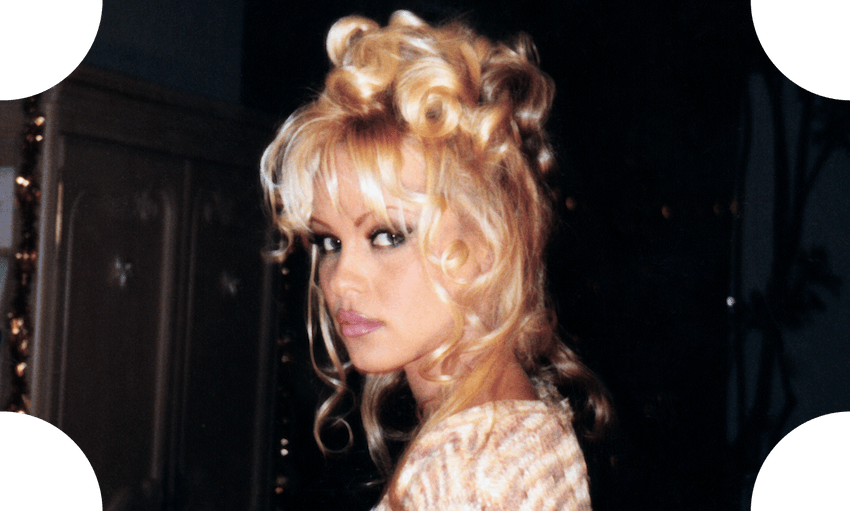The new Netflix documentary forces us to rethink what we thought we knew about the 90s sex symbol, writes Alex Casey.
One of the fastest-growing documentary genres of the modern age is the one that asks the question: “why did we treat famous woman X like absolute crap for her entire career?” It’s happened for Britney, Whitney, Amy, Paris and now the latest is Pamela Anderson in Pamela, a Love Story on Netflix.
We meet the Baywatch star in the present day at 55 years old, pottering around her lakeside home in the sleepy town of Ladysmith, Canada. She’s recently divorced (her fifth time), and now spends her days floating around the property in billowy white linen like a beautiful blonde ghost. As she reflects on the first of many devastating chapters of her life, the documentary delves into a seemingly endless well of incredible and heartbreaking archive material.
Anderson meticulously documented every experience, first in her diaries and later with extensive home video footage – stolen tapes of which would eventually come to define her in the public’s eye. We learn of her childhood in a violent home, and her experience of sexual abuse at a young age. Her journals from the time, too painful for present-day Anderson to even open, are read by a soundalike.
Everything changed for teenage Pamela at a 1989 football game, where a roaming cameraman took a shine to her and put her up on the big screen to a roaring crowd. This moment eventually led to Playboy, which led to Baywatch, and in her journals you hear the voice of a young woman thrilled to be taking her own body back from a childhood that stole it. But as present day Anderson (and the audience) knows, this chapter actually marks the beginning of Anderson’s image being slowly wrenched out of her grasp and firmly into that of the public.
Supercuts of lecherous talk show hosts and invasive paparazzi (also a mainstay of the genre) are nothing compared to what happened in 1995, when Anderson discovered that honeymoon tapes of her and then-husband Tommy Lee have been stolen from their house. The intimate parts were cut out and stitched together, and her “sex tape” sold around the world without her permission. She likens it to the feeling of violation she experienced as a child, vowing to both fight the distributors in court and never take any money for the tapes.
Given that this all happened nearly 30 years ago, it’s incredible how many modern day problems are contained in this groundbreaking privacy case. Anderson recalls walking into courtrooms full of male lawyers who have printed out her Playboy spreads, arguing that she doesn’t deserve the rights to her own image because she’s been naked in public before. “I just remember thinking: ‘why do all these men hate me so much?’” she ponders. The tape made it online to be endless reproduced for perpetuity, and Anderson realised she was fighting a losing battle.
When the litany of Pam and Tommy sex tape punchlines are contrasted with the impact the crime had on Anderson’s mental health, family and career, it’s hard to not get angry. You’d think that all these years later, we might have learnt something but, as the documentary captures in real time, the release of Hulu series Pam & Tommy (2022) shows that nothing has really changed. Neither Anderson nor Lee were consulted on that project, but a revealing grab from Lee saying he thought it was “pretty cool” shows how differently the aftermath of the tape played out for him.
“I just feel sick,” Anderson says upon learning of the series, hands visibly shaking as she starts stress-eating. “It’s like you are this thing that belongs to the world.”
It’s a quote that sums up Pamela, a Love Story pretty nicely – here we have a real person who the entire world never cared enough to treat as one. Although there are a few weird asides along the way (still not entirely sure what that Julian Assange digression was all about), it’s still a revealing and deeply personal documentary that ends on a pretty against-all-odds high note.
Extremely sad in parts and darkly funny in others, Pamela, a Love Story is a necessary reappraisal of a popular culture icon, one who has finally earned the right to reveal herself entirely on her own terms.



